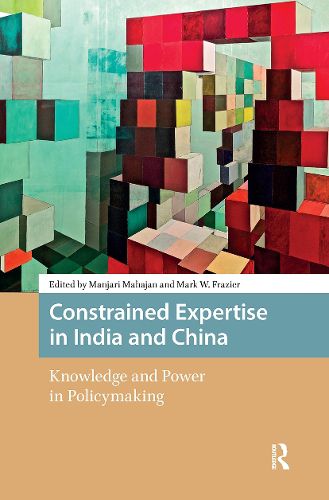Readings Newsletter
Become a Readings Member to make your shopping experience even easier.
Sign in or sign up for free!
You’re not far away from qualifying for FREE standard shipping within Australia
You’ve qualified for FREE standard shipping within Australia
The cart is loading…






Constrained Expertise in India and China explores what kinds of knowledge and knowledge purveyors get mobilized and privileged, and what gets sidelined in policymaking in India and China. Through its detailed empirical studies in both countries, the volume illuminates a trend of increasing concentration of political authority which has frequently demanded that experts be aligned with the central government's agenda. Spaces are shrinking for divergent and oppositional viewpoints, whether these come from the bureaucracy, academia, think tanks, or NGOs. The declining autonomy of experts has been exacerbated by institutional structures, since knowledge purveyors that directly contribute to policymaking typically have been embedded within bureaucracies or otherwise dependent on the state rather than occupying independent bases. Both countries face the challenge of how to build and sustain ecosystems of heterogeneous experts that are not simply echo chambers of executive authority.
$9.00 standard shipping within Australia
FREE standard shipping within Australia for orders over $100.00
Express & International shipping calculated at checkout
Stock availability can be subject to change without notice. We recommend calling the shop or contacting our online team to check availability of low stock items. Please see our Shopping Online page for more details.
Constrained Expertise in India and China explores what kinds of knowledge and knowledge purveyors get mobilized and privileged, and what gets sidelined in policymaking in India and China. Through its detailed empirical studies in both countries, the volume illuminates a trend of increasing concentration of political authority which has frequently demanded that experts be aligned with the central government's agenda. Spaces are shrinking for divergent and oppositional viewpoints, whether these come from the bureaucracy, academia, think tanks, or NGOs. The declining autonomy of experts has been exacerbated by institutional structures, since knowledge purveyors that directly contribute to policymaking typically have been embedded within bureaucracies or otherwise dependent on the state rather than occupying independent bases. Both countries face the challenge of how to build and sustain ecosystems of heterogeneous experts that are not simply echo chambers of executive authority.